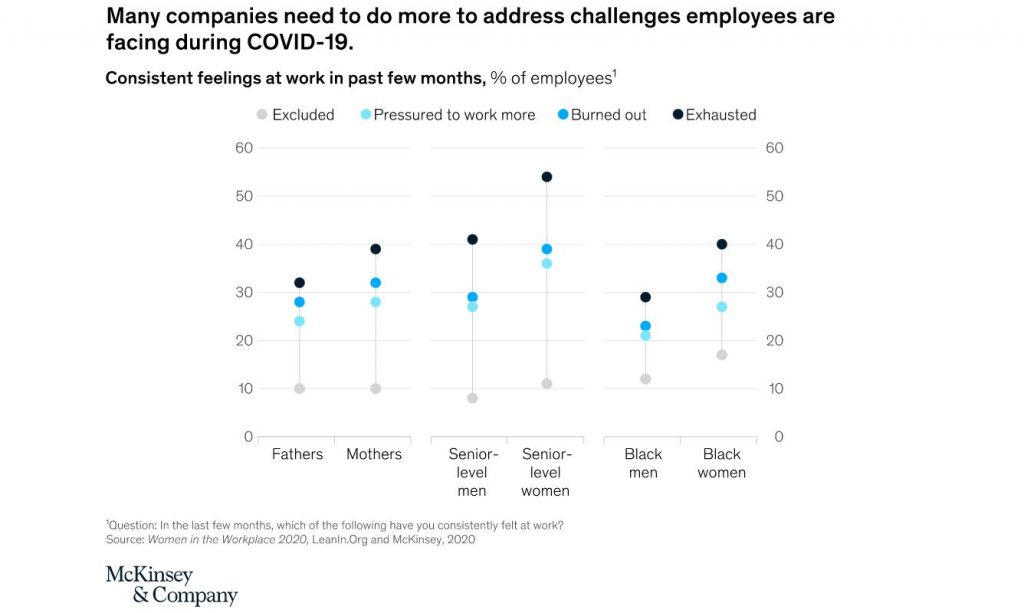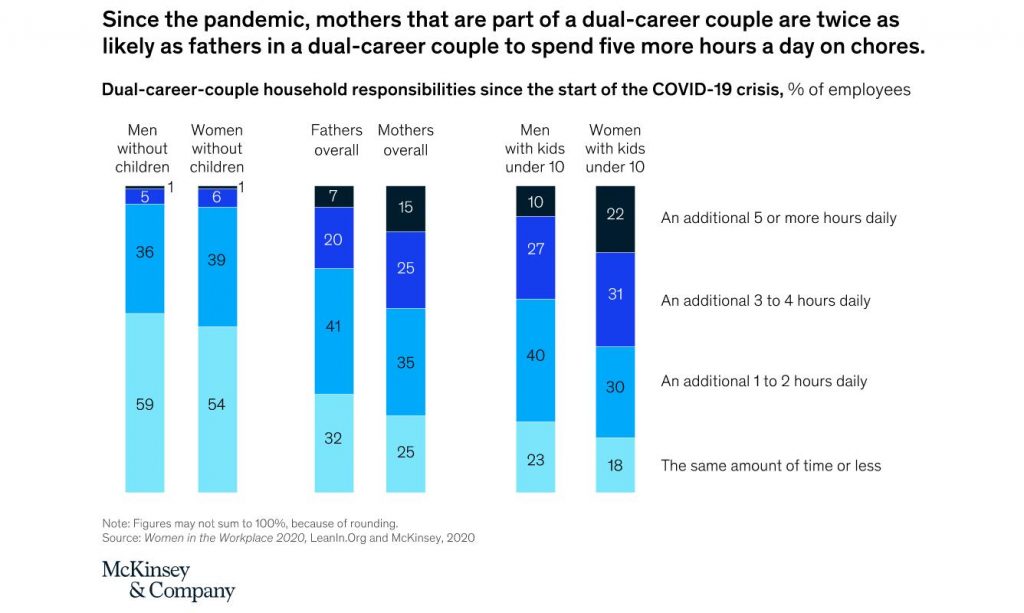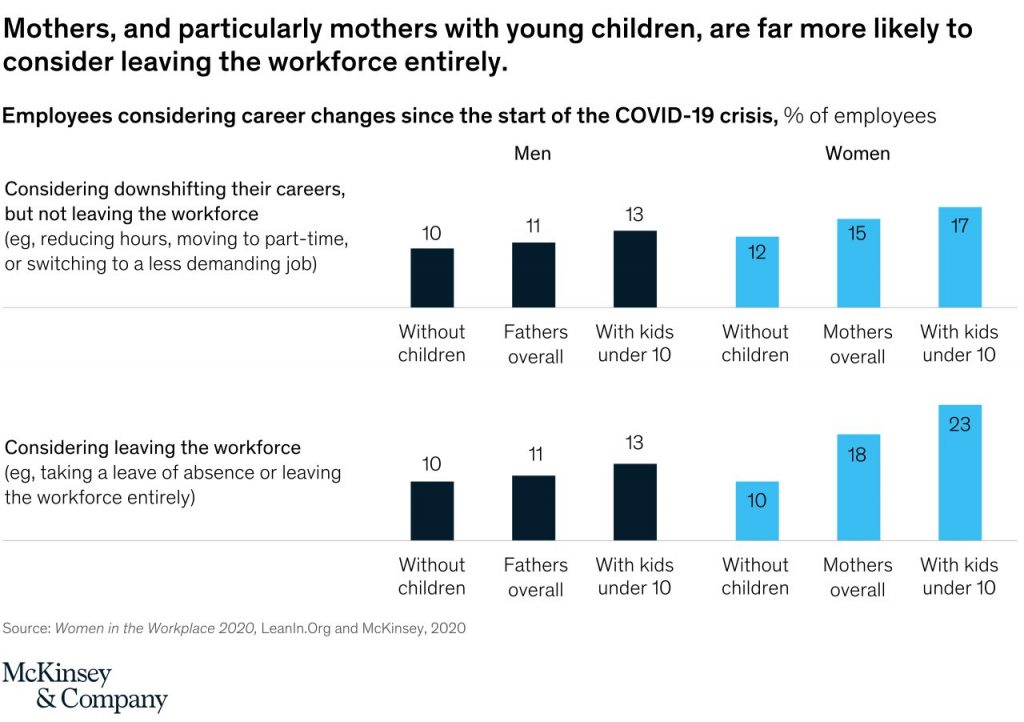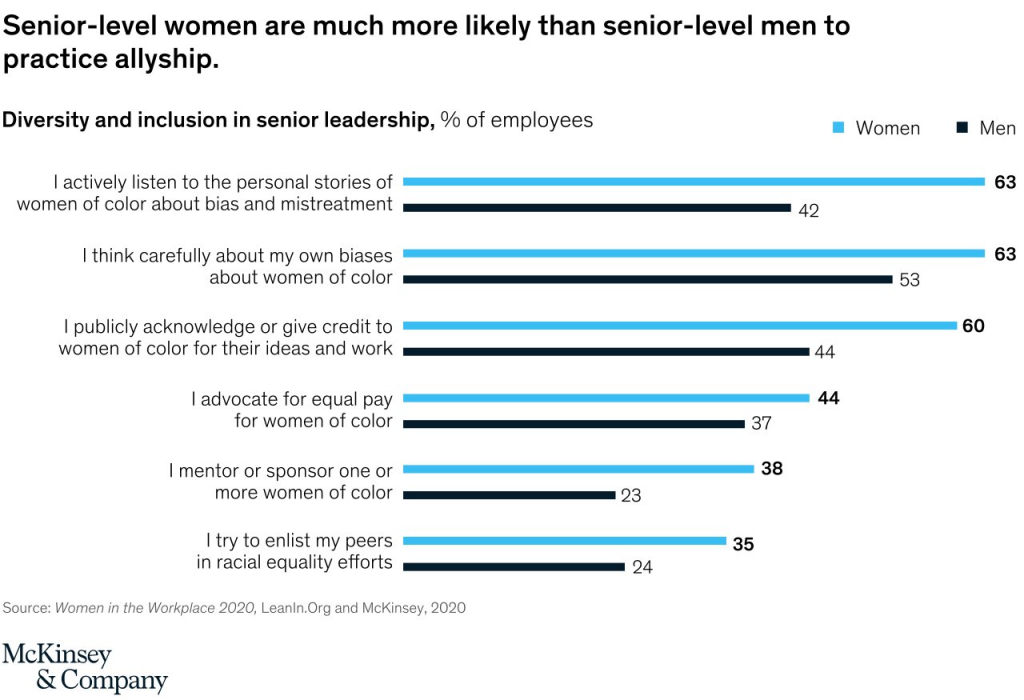As many as two million women across the United States are considering taking a leave of absence or leaving the workforce altogether due to the challenges created by the coronavirus pandemic, McKinsey & Company says.
The exodus means the corporate world will end up with far fewer women in leadership roles and far fewer women on track to be future leaders, according to the annual Women in the Workplace study, conducted by the global consulting firm in partnership with LeanIn.Org.
The research, which covers the effects of COVID-19 on U.S. working women, notes that a large number of companies have implemented significant initiatives to supports employees over the past several months.
“They are sharing valuable information with employees, including updates on the business’s financial situation and details about paid-leave policies. Almost all companies are providing tools and resources to help employees work remotely. Many have also expanded services related to mental health.”
Read more: Need to Facilitate Funding Access for Female Entrepreneurs
However, it says fewer companies have managed to address the root causes of employee stress and burnout in this unprecedented period of crisis.
“Less than a third of companies have adjusted their performance review criteria to account for the challenges created by the pandemic, and only about half have updated employees on their plans for performance reviews or their productivity expectations during COVID-19.”
According to McKinsey, that leaves many employees—particularly parents and caregivers—with the choice of either falling short of pre-pandemic expectations that may now be unrealistic, or pushing themselves to maintain an unsustainable pace.

The report also highlights the issue of financial anxiety, saying that companies are introducing policies and programs to alleviate employees’ financial stress.
“More than half have increased paid leave—which is an important option for employees who need time off but can’t afford to miss a paycheck—and about a third have added or expanded stipends to offset the costs of working from home.”
But McKinsey adds companies that are struggling financially may not be able to reassure their employees on this front, which is a major cause of concern.
Another issue underlined in the study is that women and mothers, in particular, are taking the brunt of the situation.
Mothers, according to McKinsey’s findings, are more than three times as likely as fathers to be responsible for most of the housework and caregiving during the outbreak.

“In fact, they’re 1.5 times more likely than fathers to be spending an additional three or more hours per day on housework and childcare,” it noted, adding that financial insecurity is a greater challenge for single mothers.
According to the report, childcare responsibilities is cited as a primary reason by mothers who are thinking about downshifting or leaving.

Women Leaders
When it comes to senior-level women, the consulting firm says they could face higher criticism and harsher judgment, especially now that the stakes are high.
“Senior-level women are also nearly twice as likely as women overall to be ‘Onlys’—the only or one of the only women in the room at work,” the study indicated, calling it an even heavier load.
That is why senior-level women are noticeably more likely than men at the same level to feel burned out and under pressure to work more, McKinsey wrote.
“And they are 1.5 times more likely than senior-level men to think about downshifting their role or leaving the workforce because of COVID-19. Almost three in four cite burnout as a main reason.”
Read more: Startup Lisboa Encouraging Female Entrepreneurship to Aid City’s Green Agenda
The report says the possibility of losing so many senior-level women rings alarm bells for several reasons.
First of all, the financial repercussions could be serious as data cited by McKinsey shows that company profits and share performance can be around 50 percent higher when women are well represented at the top.
Another reason is that women in senior positions have a huge and meaningful impact on a company’s culture.
“They are more likely than senior-level men to embrace employee-friendly policies and programs and to champion racial and gender diversity: more than 50 percent of senior-level women say they consistently take a public stand for gender and racial equity at work, compared with about 40 percent of senior-level men,” the research revealed.
Furthermore, they are more likely to mentor and sponsor other women.

The report notes that 38 percent of senior-level women are currently mentoring or sponsoring one or more women of color, in comparison with only 23 percent of senior-level men.
“If women leaders leave the workforce, women at all levels could lose their most powerful allies and champions,” McKinsey warns.

